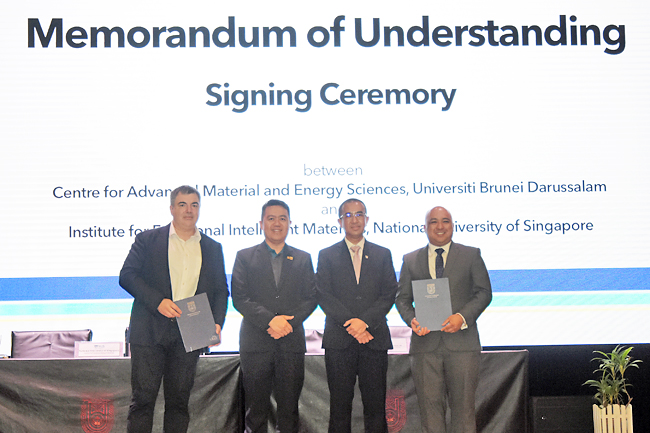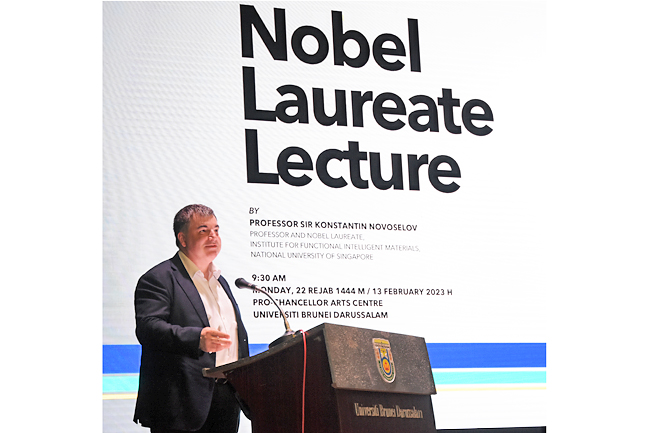James Kon
The Centre for Advanced Material and Energy Sciences (CAMES), Universiti Brunei Darussalam (UBD) and Institute for Functional Intelligent Materials (I-FIM), National University of Singapore (NUS) yesterday signed a memorandum of understanding (MoU) to forge collaboration in the fields of smart materials, artificial intelligence (AI), and sustainability solutions, in particular for applications in Brunei’s industries.
CAMES Director Dr Haji Abdul Hanif bin Dato Paduka Haji Mahadi and I-FIM Director Professor Sir Konstantin Novoselov signed the MoU. Permanent Secretary (Higher Education) at the Ministry of Education Dr Haji Azman bin Ahmad and UBD Vice-Chancellor Dr Hazri bin Haji Kifle witnessed the signing.
The event took place during the Nobel Laureate Lecture and International Symposium on ‘Smart Materials for Green Energy and Sustainable Development’, hosted by UBD at its Pro-Chancellor Arts Centre.
Professor Novoselov, a physicist who was awarded the 2010 Nobel Prize for Physics for his experiments with graphene, presented the Nobel Laureate lecture.


His lecture on ‘Sustainability for Everyone’ discussed the importance of advanced materials research to tackle issues to achieve sustainability.
Professor Novoselov explain-ed that the discovery of new materials would drive technologies such as water treatment for clean water generation and green energy production and storage.
He also introduced the concept of functional intelligent materials, with the ability to learn to perform a particular function and be programmable to respond to external stimuli. These materials could have the capability to change shape or to ‘self-heal’ and would have endless applications, from green hydrogen energy to smart drug delivery.
He also said that advances in computational modelling and AI could be utilised to accelerate and optimise materials discovery and research.
Meanwhile, in the afternoon session, the international symposium on smart materials for green energy and sustainable development was conducted as a platform for knowledge-sharing and discussion on research collaboration between academics, government, and industry sectors.
The symposium will promote a quadruple helix collaboration involving the public sector, universities, industry, and community to tackle shared goals for sustainable development.
Six lectures were delivered by three research experts from NUS and three from UBD.
Ten researchers from NUS attended the symposium with diverse research expertise, ranging from chemistry to materials and AI.






